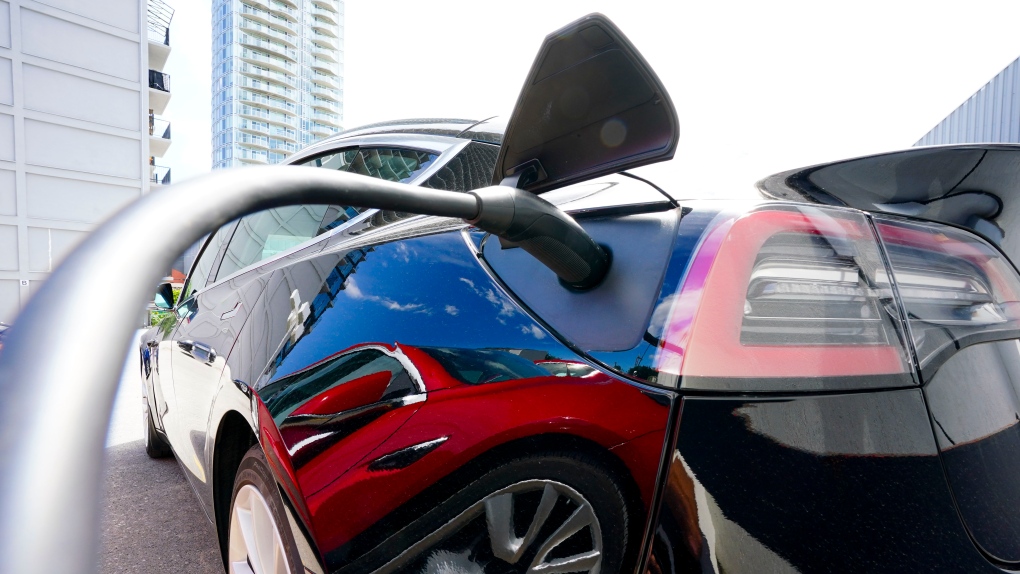Federal government EV mandates destined to fail
Appeared in the Toronto Star, December 19, 2023
According to
reports, the Trudeau government will soon unveil regulations meant to phaseout the sale of new internal combustion vehicles and compel Canadians to buy zero-emission vehicles. The Biden administration is also mandating a similar shift. But these initiatives overlook two realities—consumer preferences are not easily swayed by top-down government directives, and the unrealistic timeline for minerals crucial for electric vehicles (EV) raises serious doubts about the likelihood of success.
Specifically, according to the Trudeau government’s new regulations, all new passenger vehicles and light trucks sold in Canada must be electric zero-emission vehicles by 2035, with interim targets of 20 per cent by 2026 and 60 per cent by 2030. And the Biden administration has mandated that
two-thirds of new vehicles sold in the United States must be electric by 2032.
And yet, despite
multibillion-dollar subsidies and governmental efforts to promote EV adoption, consumers are not embracing them. In Canada, only 6.5 per cent (98,589) of the 1.5 million new vehicles sold in 2022 were electric, according to
Statistics Canada. Achieving the Trudeau government's 2026 target would require a rapid increase in EV sales to more than 300,000 in coming years and more than 900,000 in 2030 (assuming no change in total vehicle sales). Such rapid growth in a short timeframe is at best questionable.
South of the border,
data from the U.S. Department of Energy indicates that, out of 283.5 million registered vehicles in 2022, EVs comprised a mere 0.9 per cent of total vehicle registrations. In response, automakers are making strategic business decisions.
Ford, for example, is delaying the construction of $12 billion worth of EV production facilities, citing a lack of consumer demand. Similarly,
General Motors is abandoning the goal of producing 400,000 EVs by mid-2024 due to lower-than-expected sales.
But even in the unlikely scenario of sudden shift in consumer preferences, production-side barriers loom large. For example, the extraction (i.e. mining) of lithium, nickel, manganese, cadmium, graphite, zinc and other rare-earth elements necessary for EVs requires a rapid and marked expansion.
According to a
recent study, to meet international EV adoption mandates (including mandates in Canada and the U.S.) by 2030 the world would need 50 new lithium mines, 60 new nickel mines, 17 new cobalt mines, 50 new mines for cathode production, 40 new mines for anode materials, 90 new mines for battery cells, and 81 new mines for EV bodies and motors, for a total of 388 new mines worldwide. For context, in 2021 there were only 340 metal mines operating in Canada and the U.S.
And historically, the development of mining and refining facilities has been slow. Production timelines range from six to nine years for lithium and 13 to 18 years for nickel—two elements critical for EV batteries. The aggressive government timelines for EV adoption clash with historically sluggish metal and mineral production, raising the risk of EV manufacturers falling short of needed minerals.
Not only are consumers resistant to top-down regulations, but the ambitious short-term EV adoption mandates in Canada and the U.S. are on a collision course with the reality of metal and mineral production capacity. Simply put, it’s not at all clear that sufficient capacities will be available to produce enough EVs to achieve the mandates being imposed on Canadians and Americans, nor is it clear consumers in either country are willing to spend their own money to purchase them.
Authors:
Julio Mejía
Junior Policy Analyst
Elmira Aliakbari
Director, Natural Resource Studies, Fraser Institute
Jason Clemens
Executive Vice President, Fraser Institute
www.wythall.org.uk





